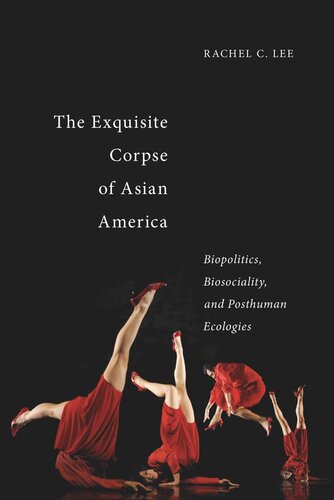

Most ebook files are in PDF format, so you can easily read them using various software such as Foxit Reader or directly on the Google Chrome browser.
Some ebook files are released by publishers in other formats such as .awz, .mobi, .epub, .fb2, etc. You may need to install specific software to read these formats on mobile/PC, such as Calibre.
Please read the tutorial at this link: https://ebookbell.com/faq
We offer FREE conversion to the popular formats you request; however, this may take some time. Therefore, right after payment, please email us, and we will try to provide the service as quickly as possible.
For some exceptional file formats or broken links (if any), please refrain from opening any disputes. Instead, email us first, and we will try to assist within a maximum of 6 hours.
EbookBell Team

0.0
0 reviewsWinner of the 2016 Association for Asian American Studies Award for Best Book in Cultural Studies
The Exquisite Corpse of
Asian America
addresses this central question: if race has been settled as a legal or social
construction and not as biological fact, why do Asian American artists,
authors, and performers continue to scrutinize their body parts? Engaging
novels, poetry, theater, and new media from both the U.S. and
internationally—such as Kazuo Ishiguro’s science fiction novel Never Let Me
Go or Ruth Ozeki’s My Year of Meats and exhibits like that of Body
Worlds in which many of the bodies on display originated from Chinese prisons—Rachel
C. Lee teases out the preoccupation with human fragments and posthuman
ecologies in the context of Asian American cultural production and theory. She
unpacks how the designation of “Asian American” itself is a mental construct
that is paradoxically linked to the biological body.
Through chapters that each use a body part as springboard for
reading Asian American texts, Lee inaugurates a new avenue of research on
biosociality and biopolitics within Asian American criticism, focused on the
literary and cultural understandings of pastoral governmentality, the divergent
scales of embodiment, and the queer (cross)species being of racial subjects.
She establishes an intellectual alliance and methodological synergy between
Asian American studies and Science and Technology Studies (STS), biocultures,
medical humanities, and femiqueer approaches to family formation, carework,
affect, and ethics. In pursuing an Asian Americanist critique concerned with
speculative and real changes to human biologies, she both produces innovation
within the field and demonstrates the urgency of that critique to other
disciplines.